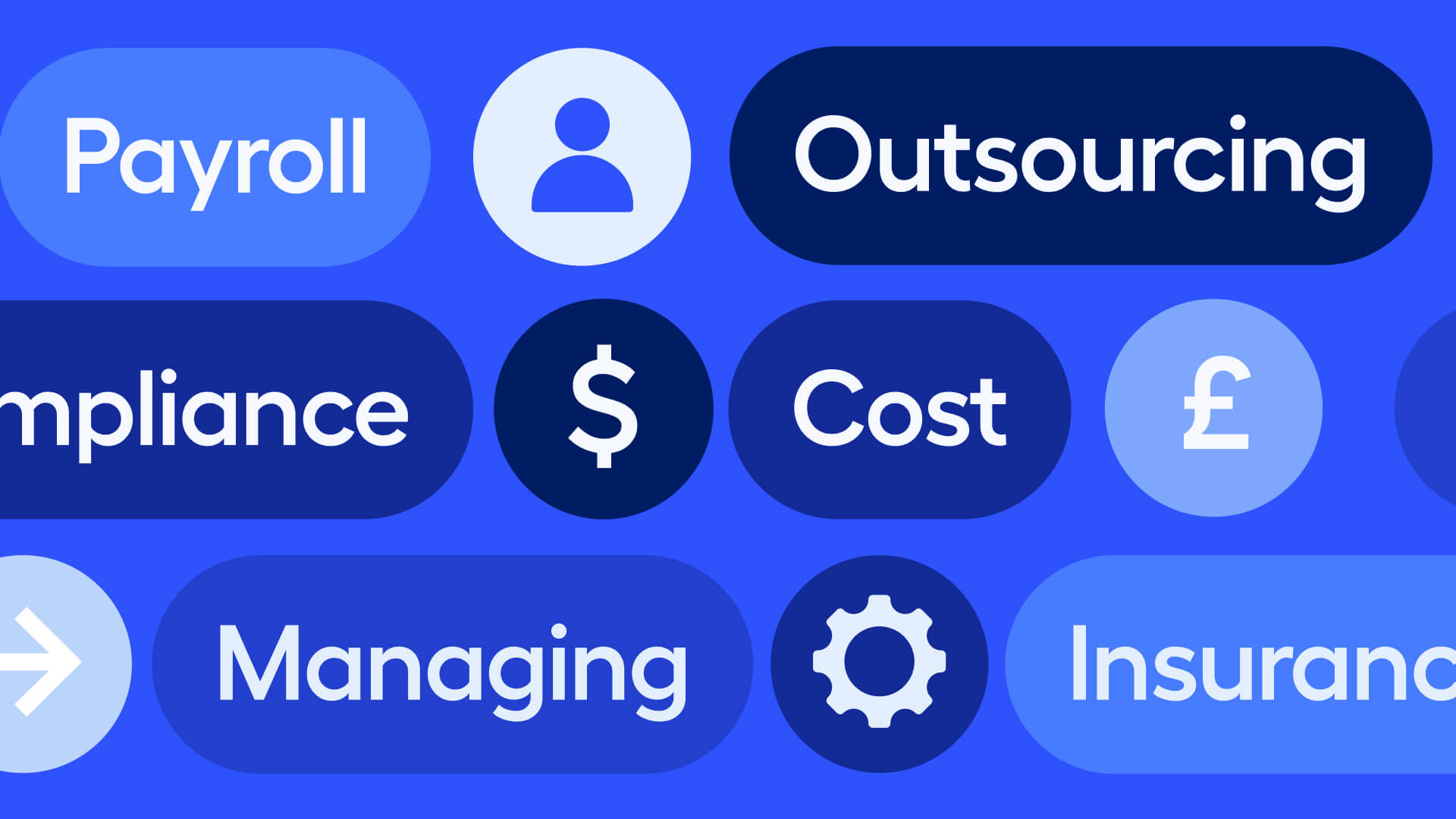For a growing business, payroll can quickly become complicated. Maintaining compliance with a workforce that is spread across several tax brackets or even countries is a huge administrative challenge. And payroll outsourcing costs, which are usually set per employee, soon add up.
In this article, we take a closer look at these fees, considering the most cost-effective way for scaling HR departments to minimize their outgoings and find the right payroll outsourcing provider in the long term.
Calculating Total Payroll Outsourcing Costs: A Breakdown
You can use either a professional employer organization (PEO) or payroll provider to manage your payroll. According to research, a PEO will usually charge between 2% and 12% of employee wages. Meanwhile, a payroll provider will typically charge a base fee and a cost per employee. We look at the example of the payroll provider in more depth in this section.
1. Basic Payroll Outsourcing Costs
You can use the costs in this section as a benchmark for payroll processing fees whilst calculating your own payroll outsourcing costs.
A. Paying a Payroll Provider
A payroll provider charges a base rate for tasks such as:
- Filing tax and voluntary deduction reports
- Computing overtime payments
- Calculating state, federal and employment taxes
- Processing levies
- Entering new hires into the system
- Processing requests for pay check advances
The average cost for these services is between $20 and $250 a month. However, as we explore in the next section, the quote the payroll company charges will also be based on factors such as state of residence, pay period frequency and number of employees.
2. Payroll Tax Assistance
As a business owner, you should be aware of the fact that you will usually incur a separate payroll outsourcing cost that relates to tax assistance. While it is normally around $2-$10 per employee, costs vary based on the states where your company is operating so it’s important to get a tailored quote.
3. A Comparison to Payroll Software Costs
As a comparison to payroll outsourcing costs, the average payroll software costs upwards of $40 a month. However, you would, of course, need to factor in the charges of paying for a full-time member of staff if you were going down the payroll software only route.
How is Payroll Pricing Usually Structured?
The cost of payroll outsourcing can be divided up in several ways. Here we explore those.
1. Tiered Pricing Models
Payroll outsourcing fees are often divided into tiers or packages. For example, a payroll outsourcing provider might offer different pricing tiers for small businesses (under 50 employees), mid-sized businesses (50-500 employees), and large enterprises (500+ employees).
2. Pay-Per-Employee Pricing
Pay-per-employee pricing is a straightforward model where businesses are charged a fixed fee for each employee on their payroll. This pricing structure is particularly suitable for businesses with varying workforce sizes as it scales with the number of employees.
3. Transaction-Based Pricing
Transaction-based pricing is designed to accommodate businesses with fluctuating payroll processing needs. Instead of charging based on the number of employees, this model charges per payroll transaction or pay cycle run. This means that if your business runs payroll more frequently or has complex pay calculations, you’ll pay more.
4. Bundled Services and Package Pricing
Bundled services and package pricing options combine multiple payroll-related services into a single, comprehensive offering. These packages often include payroll processing, tax compliance, direct deposit, and sometimes HR services. Businesses benefit from the convenience of having all their payroll needs covered in one package, and this can often result in cost savings compared to purchasing these services separately.
5. Customized Pricing Agreements
Customized pricing agreements offer flexibility to tailor the payroll outsourcing cost structure to the specific requirements of a business. This approach is ideal for businesses with unique payroll needs, such as those operating in highly specialized industries with complex pay calculations, multi-state or international operations, or intricate compliance demands.
What Factors Shoot Up Payroll Outsourcing Costs?
Though not immediately obvious, these payroll outsourcing fees related to these key factors can quickly creep in:
-
- Geographic reach: Operating in multiple states or countries can increase payroll costs due to varying tax regulations and compliance requirements.
- Complexity: Complex pay calculations, such as commission-based pay structures, multiple pay rates, or special deductions can increase outsourcing costs. This is because they require more time and expertise to be processed accurately.
- Printing: Payroll providers typically charge an additional $25 to $75 per employee to print, mail, and report tax-related documents.
Choosing the Right Payroll Outsourcing Provider
The right payroll provider comes with not only affordable fees but high-quality service in the long run. To find a good fit, you should consider these key factors:
1. Service portfolio and specialization:
Evaluate the range of services offered by the provider. Then ensure that their offerings align with your specific payroll needs, whether it’s basic payroll processing, tax compliance, HR services, or specialized solutions for your industry. Multiplier, for example, offers an easy HR, payroll and compliance solution designed for global teams.
2. Provider reputation and track record:
Research the provider’s reputation in the industry and read client reviews on websites such as Trustpilot and G2.
3. Data security and compliance:
Inquire about the provider’s security measures, encryption protocols, and compliance with regulations like GDPR or HIPAA, depending on your location and industry.
4. Customer support and communication:
Assess the provider’s responsiveness and availability. Effective communications, such as the ever-available online support at Multiplier, can prevent payroll issues down the line.
5. Cost transparency and pricing structures:
Opt for a payroll provider that has pricing that is easy to understand with all costs promoted upfront.
Minimizing the cost of payroll
As an employer, the costs of payroll can feel like a minefield. However, by understanding basic fee structures and then choosing a quote that works for your specific needs, you can avoid stress, hidden fees and time sinks.







